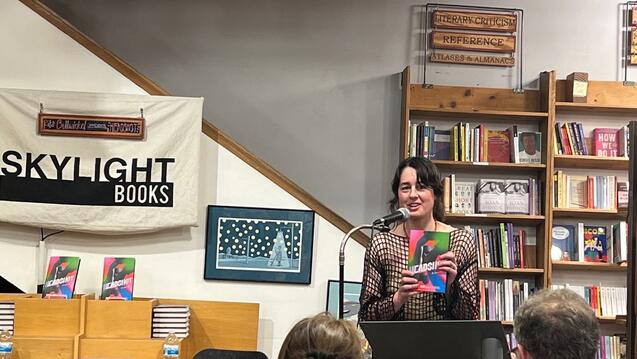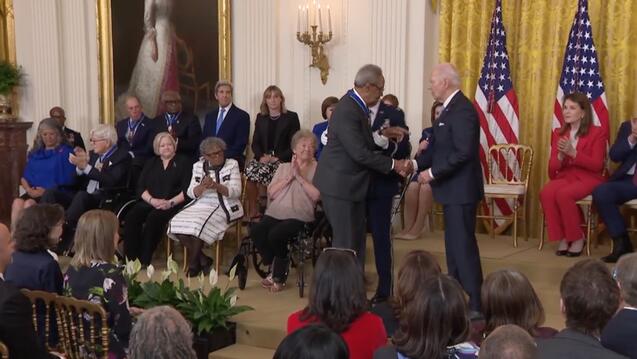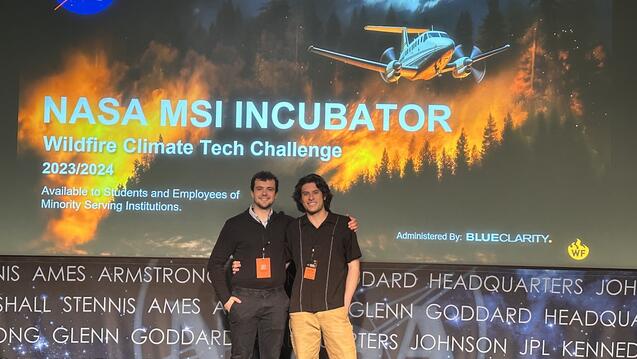Hey Siri, Help Me Change the World

Should artificial intelligence write a paper for you? Write code for you? Give you legal advice?
At a symposium on campus last month, six students shared with USF professors their experiences with generative AI in school.
Critical diversity studies major Annie Hodge ’27 described how, in the Organic Intelligence: AI and the Possibility of Creativity class, she discovered AI Lawyer, software “built for legal research.” To test AI Lawyer, she posited a criminal court case against Goldilocks on the charge of breaking and entering.
“The AI gave me specific state laws that I could apply” to the case, Hodge said. “It helped me find that Goldilocks is not guilty.”
Evelyn Ho, the professor of communication studies who created the Organic Intelligence class with co-instructor
In a panel discussion moderated by Johnathan Cromwell, assistant professor of entrepreneurship and innovation, five students shared their thoughts on artificial intelligence.
Kaylee Irsjad ’24, an English major, told about a time AI generated false quotes for a Shakespeare character, even though she made no errors on her input prompt. “It reminds me that even when we use AI we have to double-check it, and to fix and use it with our own words.”
Madeline Liu ’24, an entrepreneurship and innovation major, said college students are trained to think critically, and because of that they can question the accuracy of AI responses. But she worries that students in the future may use AI as “their first touchpoint of learning. It could be used like Wikipedia.”
Lucas Guerin MBA ’24 said it’s a matter of “knowing it when you see it.” Copying and pasting AI is “a corner you know you shouldn’t cut.”
Poonam Kakodkar EdD ’26 agreed. “I think we all know when we are crossing the line,” she said. AI should be used “mindfully, not mindlessly.”
Liu said it’s still important to learn from humans rather than from AI. “If I didn’t know how to do email marketing and I learned first through Chat GPT, I would have a very different set of perspectives than I would if I had worked with a mentor or taken an email marketing course and actually learned how to write good email copy.”
Nathan Garrick ’26, a computer science major, said, “I think it's all about self-awareness, realizing what is most important to you and what you really value.” In a time when AI can write code, he said, careful use of the tools is the key to student success.
USF has guidelines for the responsible use of AI by students, faculty, librarians, and staff.
“Learn whatever you’re learning with and without AI,” Liu said. “If all hard skills can eventually be automated, replaced by AI, then soft skills become more and more important. Critical thinking, communication, strategizing, knowing how to connect with people, always asking why, what, how, when — those things will become more and more important.”


